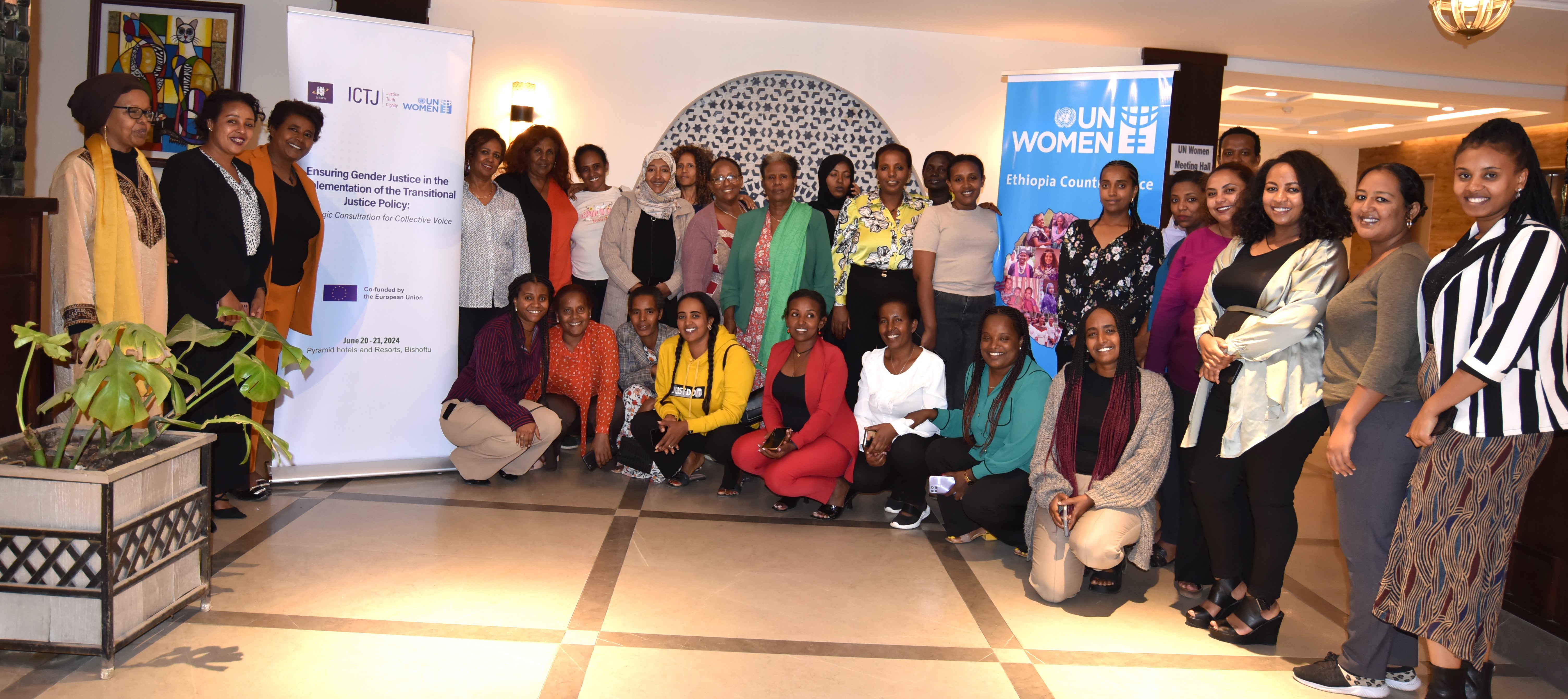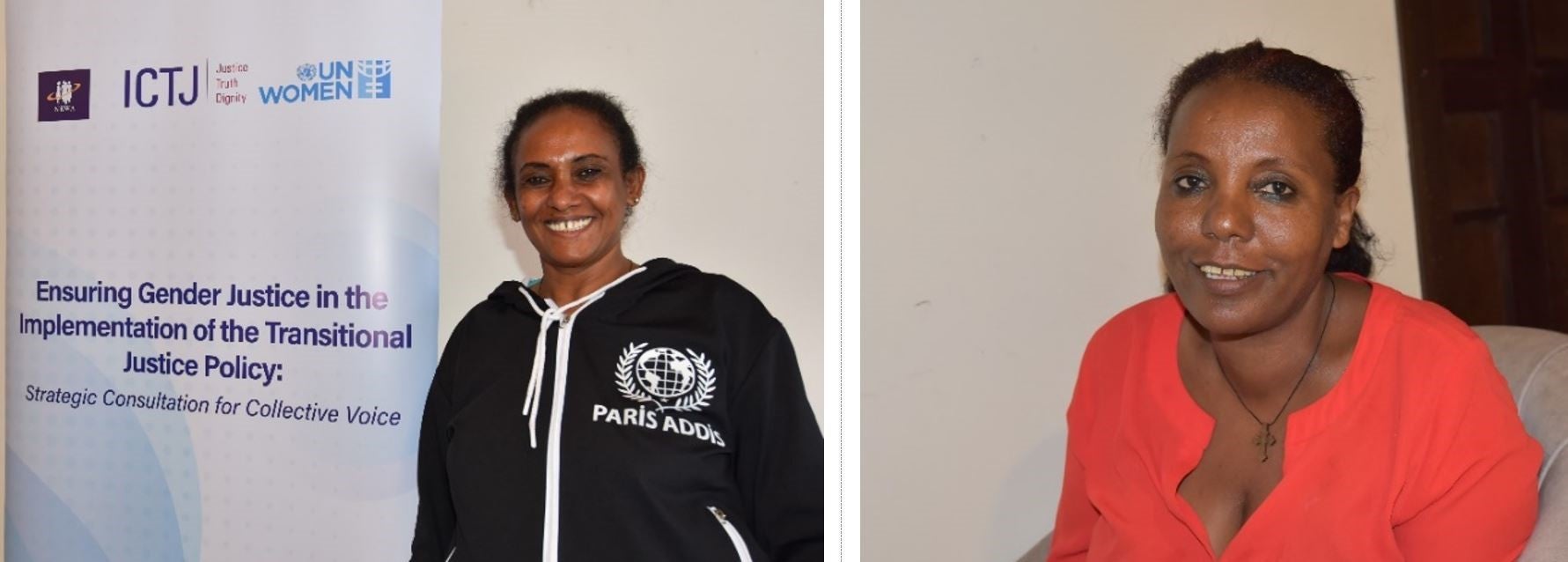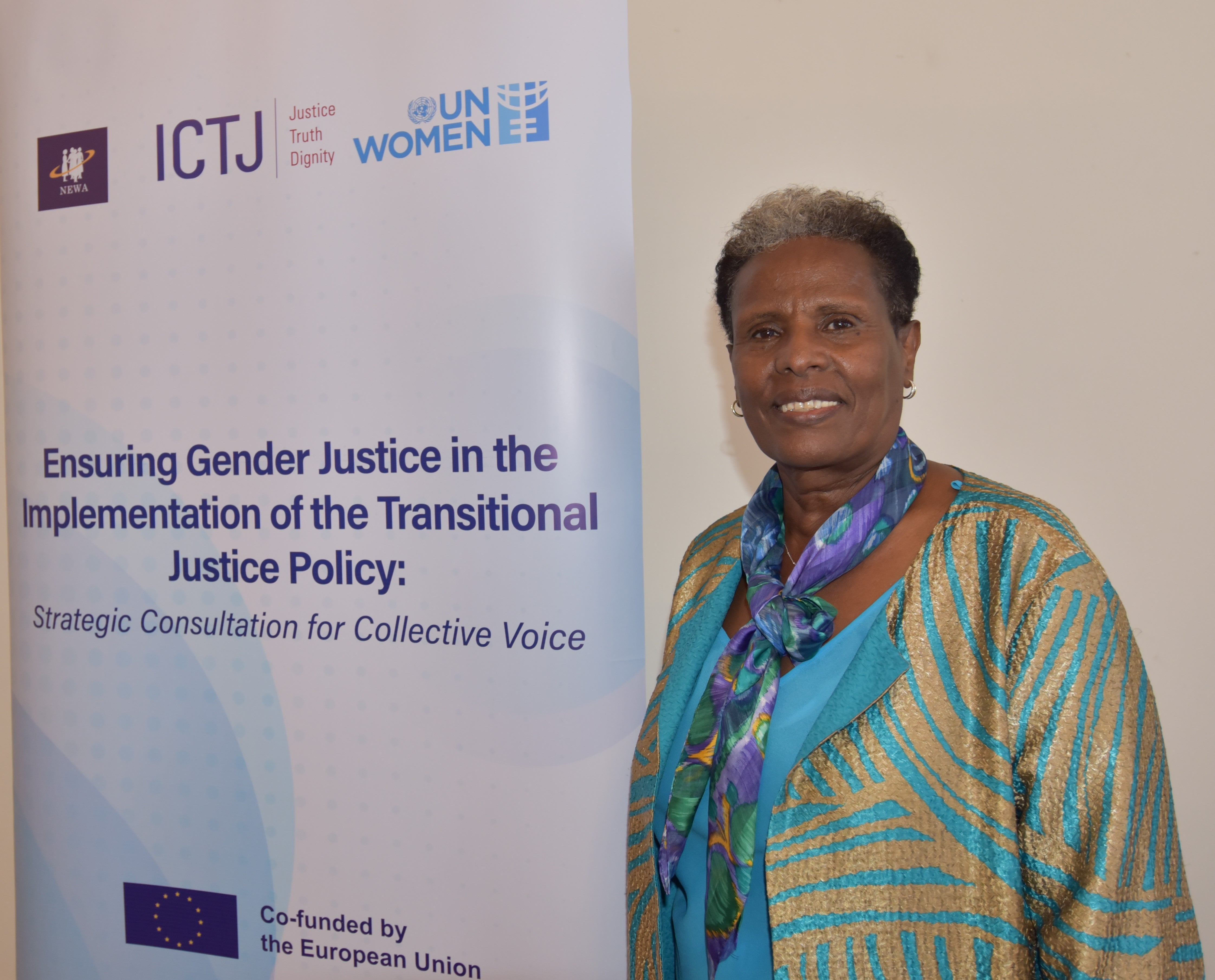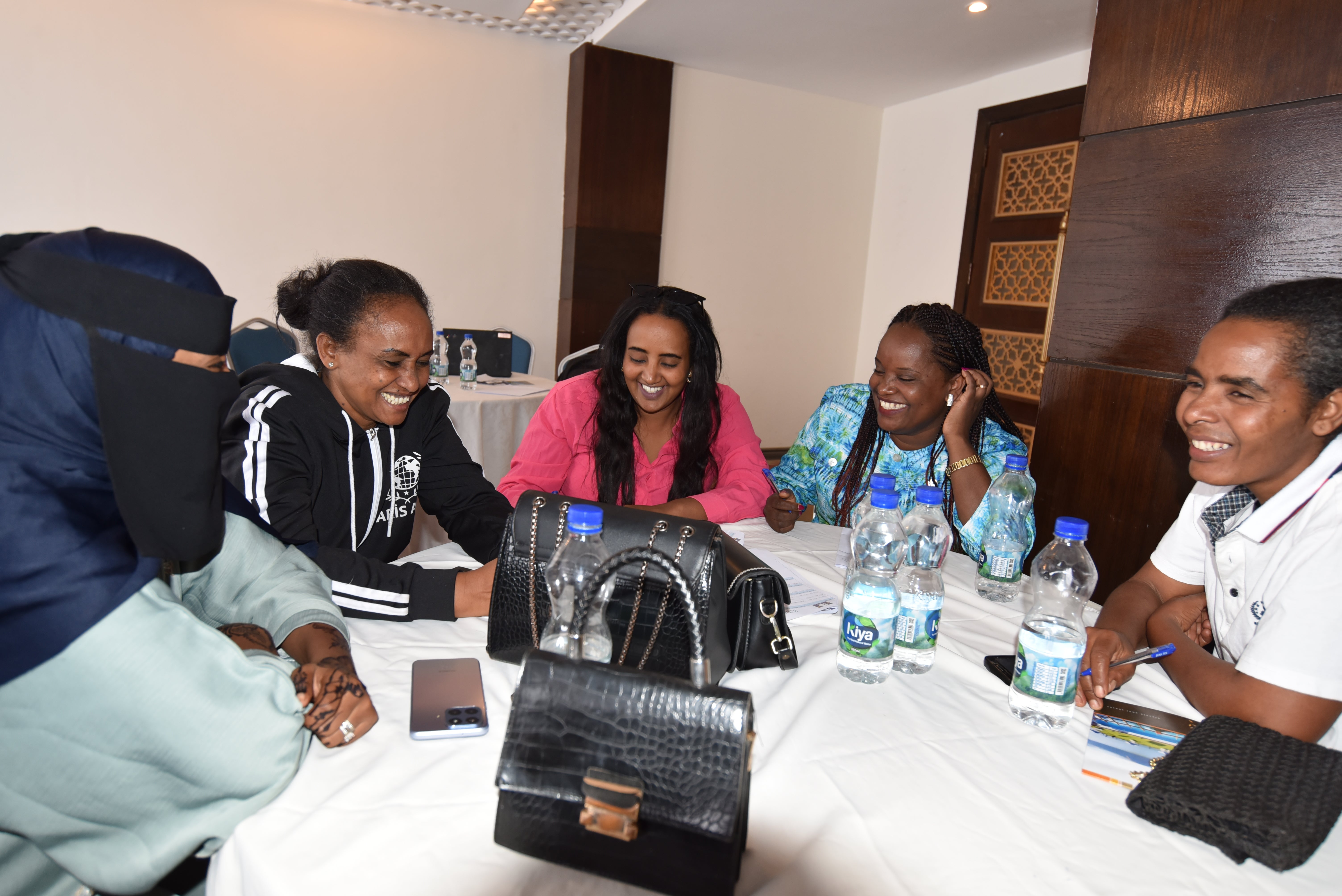UN Women supports Civil Society Organizations’ engagement in transitional justice policy
Date:
The two-day national workshop on creating space for the civil society organizations to participate in the implementation process of transitional justice policy in Ethiopia was held from 20 to 21 June 2024 in Bishoftu town, Ethiopia. The workshop targeting women leaders from non-governmental and civil society organizations and representatives of grassroots community groups from various regions of the country aimed to assess gender sensitivity of the Transitional Justice(TJ) Policy recently adopted by Ethiopia’s Council of Ministers, to identify opportunities, gaps , and to collectively strategize and plan actions to ensure gender sensitivity and women’s participation during the upcoming implementation phases of the Transitional Justice Policy realized.
Discussions based on various related presentations focused on creating awareness of the TJ policy and roles of CSOs in the policy, identification of ways to engage women led CSOs in the implementation process of the TJ Policy, as well as to assess the policy from gender and conflict survivors’ sensitive aspect under international standards. Participants from various background actively involved during the discussions to ensure gender justice in the implementation of the policy through consultation for collective voice through reflections on practical experiences, small group discussions and presentations. The workshop concluded by establishing women’s working group drawn from the workshop participants and identified its working modality by setting the group’s overall mission, vision, goal and specific objectives to channel collective voice for sustainable peace.

According to Ms. Ergeba Abraha, a board member of CSO known as Mums for Mums in Tigray region, for lasting peace to happen for generations to come and to avoid revenge, Transitional Justice which accommodates women’s voices is critical, “Above everything else, we have experienced war destroying women and children. It is with a delight and motivation to contribute for lasting peace that I am participating in the Transitional Justice workshop. This is a great opportunity for women to bring together our voices for sustainable peace. On the challenge on making the Transitional Justice (TJ) effective in her region, she highlighted on the fact that the government in her region not being aware of the Transitional Justice and on the importance of fully engaging them to make the policy effective, “What I have been raising at the workshop is the importance of the government being aware of and accepting the policy. Otherwise, the fact that only the CSO that I came from, mums for mums engagement will not make a difference. If we are aiming for a lasting peace and justice for all, it is critical to engage all the concerned, including the government at higher level.” About the action she aims to take when she gets back to her region, she added, “Although I came to the workshop because of my role as a board member of the CSO, Mums for Mums, my primary job is as the Chairwoman of the Women Affairs Bureau in Mekelle town, where there are seven districts under it. I will inform them on the knowledge gained from the workshop and on its potential to prevail a lasting peace. If there is justice and healing now, there will be a lasting peace.”
For Ms. Mahlet Tilahun, the Director of the CSO known as Sustainable Women Empowerment in Bahir Dar of the Amhara region, the workshop isn’t only timely for her region where currently internal conflicts are happening, she also sight the established women consortium at the workshop as a trusted channel for her to transmit the reality in her region regarding conflicts and their effects on women and the community as a whole, “I have never heard of transformative justice before. Now from the workshop I am very aware of it. I came from an area where conflict is going on right now. This transitional justice implementation should be speed up to see lasting solution. Before the training I used not to see the value of collecting information in relation to impacts of conflicts as I had no trusted channel to use. Now, having a trustworthy consortium with a common cause that can hear my message is sufficient for me to proceed as the voice for many voiceless women in my region.”

Ms. Workinesh Begi, Executive Director and founder of Tarkanfi Sustainable Development (TSD) in Bishoftu town, Oromia region, in her part emphasized that since the workshop participants are from almost all regions, if the transitional justice is being implemented soon, the potential of peace at country level is high. She also acknowledged the support of UN Women, “The Transitional Justice is new for our country. I have gown to Rwanda seen it impactful results. In the two-day workshop, where women leaders got together and discussed about peace, about those who are saddened and wounded from conflict and how we can contribute to heal them has enormous meaning and I would like to thank UN Women for its support. “Regarding what makes different this workshop from others in terms of peace, Ms. Workinesh added, “This one is about justice. Beyond a dialogue, specifically on accountability; those who made the damaged to believe it and ask for forgiveness and those who were damaged to be compensated to prevent conflicts from happening again. After the workshop, I will continue my advocacy work on the importance of engaging women in peace through youth, the disabled, older women and the community as a whole using the Transitional Justice policy as an opportunity.”

In mid-2023, as the TJ policy was being considered and before its adoption, the UN Women Ethiopia office convened a high-level national consultation with women from diverse backgrounds to discuss policy options. The UN Women consultation was convened in partnership with the Ministry of Justice (MoJ), the MoJ’s Transitional Justice Working Group of Experts, and the Ministry of Women and Social Affairs. The consultation was designed to ensure women’s meaningful participation and voice in the development and implementation of a gender sensitive transitional justice policy in Ethiopia. The two – day workshop aimed to ensure women in Civil Society Organizations participation and enhance the transitional Justice Policy effectiveness. The workshop was supported by Government of Germany.
